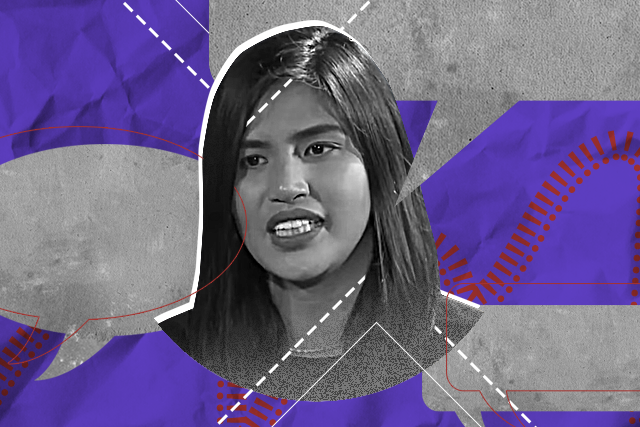Satire as a form of political commentary has been around for ages and has taken new forms in the digital space here and overseas.
Celina Pialago, spokesperson of the Metro Manila Development Authority, is the latest government official who sued bloggers and online entities over satire.
MMDA sa Commuters: Kung Nahihirapan Sumakay, ’Wag Na Lang Pumasok pic.twitter.com/v3bzU6lWCU
— Barurot News (@BarurotNews) October 7, 2019
Some of the replies to the satirical post suggest that it was interpreted literally.
The problem lies when people are not able to discern truth from political satire, the handler of satirical social media page Barurot News pointed out.
A certain “Chief Justice Lyca Gairanod” supposedly made this statement, according to the satire page’s tweet.
“Ang ating mga opisyal ay umabot na sa sukdulan ng pagkawalang pakialam sa ating mga kababayan, na madali na para sa taongbayan na maniwala na tunay ngang magbibigay ng ganoong pahayag si Pialago,” part of the statement read.
Despite indicating that the account posts satire and fake news content, more Filipinos online appeared to see them as authentic.
“Ngunit, tila’y marami pa rin ang masyadong nadala ng satirical tweet na ito at pinatulan na mistuland tunay na balita or pahayag mula kay Pialago. Tinitingnan koi to bilang indikasyon na lumalabo na ang pagitan sa kung ano ang tunay sa kung ano ang satirical,” it said.
BREAKING: Chief Justice Lyca Gairanod, Naglabas ng Pahayag Tungkol sa Barurot News pic.twitter.com/wP8maAhiWr
— Barurot News (@BarurotNews) October 9, 2019
Satire is also “protected speech,” Gairanod pointed out, provided by the Supreme Court ruling in the case between the Diocese of Bacolod verses the Commission of Elections in 2015.
The Supreme Court voted 9-5 in favor of the right of the Diocese of Bacolod to keep displaying a tarpaulin that listed candidates during the 2013 elections as “Team Buhay” or “Team Patay,” which the Comelec earlier flagged to be taken down.
Freedom of speech and of expression is also enshrined in the country’s fundamental charter. Section 4 of the 1987 Constitution states that no law shall be passed abridging the freedom of speech, of expression or of the press.
Fake news or humor?
Meanwhile, some social media personalities, groups and pages, share memes and humorous anecdotes in referring to national affairs.
Comedy Facebook account Pinoy Laugh Page was not spared Pialago’s libel case.
According to its profile, the page was established in 2011 as a “compilation of jokes and funny pics that made me laugh from different sources.”
The libel charges stemmed from a “malicious” meme on the page that claimed Pialogo was saying: “Kung nahihirapan sumakay, ‘wag na lang pumasok.”
For Pialago, this was false information that can be considered as a cyber offense.
“That’s fake news. In short, it’s a lie! And it’s a serious cyber-offense. I am worried that pages like these can poison the minds of our fellow citizens who are into social media. Let’s be responsible,” she said.
If they want to bash or criticize me, that's fine. If some of our netizens are not satisfied with my performance as the…
Posted by Celine Pialago on Wednesday, October 9, 2019
Satire and humor as political expression
While both are different forms of speech, satire and humor are now more influential in shaping public opinion online.
The high court previously defined satire as “a literary form that employs such devices as sarcasm, irony and ridicule to deride prevailing vices or follies.”
Merriam-Webster defined humor as “something that is or is designed to be comical or amusing” or “a funny or amusing quality.”
Dannagal Young, a professor of communication at the University of Delaware, explained that such practice is done for years as an effective way to expose “hypocrisy and flaws” to the public.
“Satirists like Aristophanes writing in ancient Greece used rich political satire and irony to expose hypocrisy and flaws among elites and within policies and institutions. In reality, humor has always had a very natural place in politics, particularly in democratic regimes where elected officials are accountable for their actions and citizens look at them with a critical eye,” Young observed.
Other experts, meanwhile, said that comedy can be used as a form of coping mechanism.
“Placing a comical spin on dire circumstances that are outside one’s control was an effective coping mechanism,” said Professor Nichole Force, who wrote the article “Humor’s Hidden Power: Weapon, Shield and Psychological Salve.”
Restraint speech is not the solution to disinformation, according to lawyer Marnie Tonson of Philippine Internet Freedom Alliance.
“Of course there will be unjust accusations, but in the free market of ideas the answer to false accusations cannot be less speech but more speech that leads to the truth. Prior restraint on public comment is the anathema of a democratic society,” Tonson said.
Aside from Pialago, Senate President Vicente Sotto III and presidential spokesperson Salvador Panelo also took offense from memes or posts made against them on social media. — Artwork by Uela Altar-Badayos










